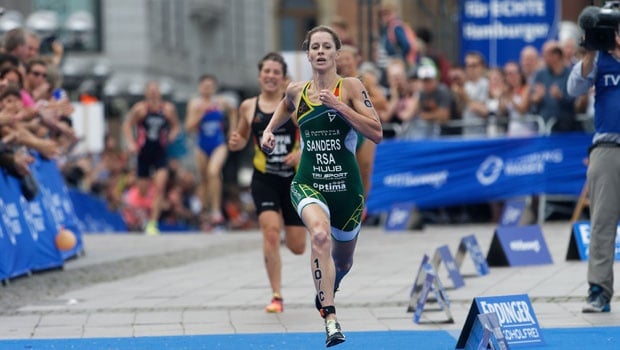
Being a professional sportswoman has its ups and downs. While female athletes compete with just as much passion and dedication as their male counterparts, they often get sidelined, paid less, and given less media coverage, funding and exposure.
But another reality that sets women apart from men is hardly ever voiced – how does getting your period affect performance and how do female athletes handle this time of the month?
As most of us know, the symptoms and side effects of menstruation can be far reaching. Physical symptoms can include moderate to severe abdominal pain, sore and tender breasts, bloating of stomach and guts, diarrhoea, nausea, dizziness, anaemia, swelling of hands and feet, headaches and tiredness. Mental symptoms include tension, irritability, low mood, anxiety, loss of confidence and feeling overly emotional.
As any serious athlete can tell you that none of the above is conducive to excellent performance when you’re competing.
The silent saboteur
We don’t talk about periods in sport for a variety of reasons. First, talking openly about periods in general is a rather recent phenomenon. Too often periods are still seen as shameful and something that can only be hinted at with euphemisms.
Second, we see sportsmen and women as these “magnificent machines” who don’t have to deal with pins and needles and headaches and side stiches like normal people. But speak to any athlete, and you’ll soon learn about the multitude of physical hardships they face.
Third, sport is traditionally thought of as a masculine pursuit, which leaves little room for feminine things like periods. An “if you want to play with the big boys” attitude that is all good and well, until a natural, healthy part of being a woman hampers your performance.
Yet, there have been a handful of incidents over the last few years around the sporting world, where sportswomen have spoken openly about their menstrual cycle.
Breaking the silence - and the taboo
At the London Marathon in 2015, Kiran Gandi controversially ran the entire race without a tampon in order to break the stigma surrounding menstruation. Gandi finished the British race with a visible blood stain on her pants to bring awareness to the many women who do not have access to sanitary towels.
Former number one British tennis player, Heather Watson publicly admitted in 2015 that she lost the first round of the Australian Open, because of ‘girl things’. This was one of the first sportswomen to openly speak about the effect of periods on their performance.
And in Wimbledon, it’s compulsory to wear a white tennis kit. While men do not see this as a problem, any woman can tell you that white is the last colour you’ll choose on your period. British tennis player, Tara Moore told the Telegraph that the thought of bleeding on her uniform gives her nightmares. Moore also pointed out that while some do take pain tablets, most painkillers are banned as they go against doping restrictions.
Just a few nights ago, Chinese swimmer, Fu Yuanhui, candidly spoke about her period. The Guardian reports Yuanhui told state broadcaster CCTV, in a poolside interview that her period arrived the day before the 4 x 100m medley.
“It’s because my period came yesterday, so I felt particularly tired – but this isn’t an excuse, I still didn’t swim well enough,” she said.
So what do you do when menstruation happens on game day?
W24 reached out to various sportswomen across disciplines and while most weren’t keen to discuss this matter, Commonwealth Games Medallist and SA triathlon athlete, Gillian Curr Sanders (who is currently in Rio, waiting to compete) was the only one willing to tackle this sensitive, yet interesting subject.
Sanders, who resides in London, says that although she does feel sluggish, there is nothing she can do about it when that time comes.
“I sometimes feel very flat. Sometimes it can be worse than other times though and be frustrating, but it's just part and parcel of being a woman and I just get on with it.”
The South African silver medallist said that she does sometimes feel at a disadvantage while competing: “I feel like I'm lacking a bit of an extra gear or I don't feel as aggressive as I would like to [during races].”
“I race pretty often, say (about) 12 to 14 races from March through to October this year, so the odds are that at some point I'll find myself racing during my period. But I try not to think about it too much. I try to ensure I eat a bit more carefully to avoid insulin spikes and keep the hormone levels as stable as possible.”
The 34-year-old triathlete combats her period pain by training herself to focus on the race, saying: “I find if I have my period while training, the exercise definitely eases the pain and also stops you thinking about it. When we are racing, the pain from the race is so severe that period pain seems a breeze and you forget you might even be having a period at that time.
"As triathletes, we train for those hurt moments during races and the more you train yourself, the more you get used to having to deal with pain. Pain becomes your friend.”
Does your period affect your performance - either in sport or in your job? Share your story with us.




 Publications
Publications
 Partners
Partners










